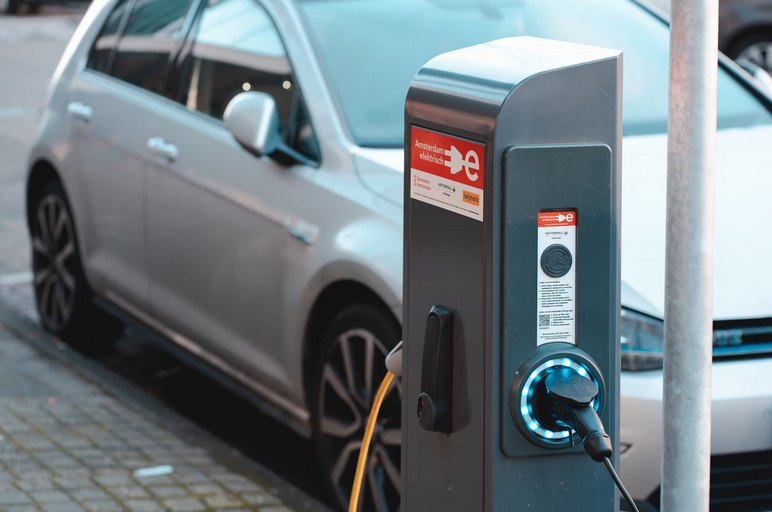In today’s fast-paced world, safety on the road has never been more critical. With increasing traffic and distractions, drivers are constantly seeking ways to protect themselves and their passengers. Enter Advanced Driver-Assistance Systems (ADAS) is a game-changer in vehicle technology. These sophisticated systems utilize cutting-edge sensors and software to help prevent accidents and enhance overall driving experiences. Imagine your car not just as a mode of transportation but as an attentive co-pilot that works around the clock to keep you safe. From adaptive cruise control to automatic emergency braking, ADAS is revolutionizing how we think about vehicle safety and paving the way for smarter roads ahead.
How ADAS Works
 Advanced Driver-Assistance Systems (ADAS) rely on a blend of sensors, cameras, and software to enhance vehicle safety. These components work together seamlessly to monitor the car’s surroundings. Cameras capture real-time images of the road and nearby objects. Lidar or radar systems detect distance and movement, creating a dynamic 3D map around the vehicle. This data is processed by sophisticated algorithms that interpret various scenarios. If an obstacle appears suddenly, ADAS can alert drivers or even apply brakes automatically. Additionally, GPS technology aids in navigation accuracy while enhancing overall situational awareness.
Advanced Driver-Assistance Systems (ADAS) rely on a blend of sensors, cameras, and software to enhance vehicle safety. These components work together seamlessly to monitor the car’s surroundings. Cameras capture real-time images of the road and nearby objects. Lidar or radar systems detect distance and movement, creating a dynamic 3D map around the vehicle. This data is processed by sophisticated algorithms that interpret various scenarios. If an obstacle appears suddenly, ADAS can alert drivers or even apply brakes automatically. Additionally, GPS technology aids in navigation accuracy while enhancing overall situational awareness.
Types of ADAS Technologies
Advanced Driver-Assistance Systems encompass a variety of technologies that enhance vehicle safety. One prominent type is Adaptive Cruise Control (ACC). This system automatically adjusts the vehicle’s speed to maintain a safe distance from the car ahead. Another key technology is Lane Departure Warning (LDW). It detects lane markings and alerts drivers when they unintentionally drift out of their lanes. This feature helps prevent potential accidents caused by distractions. Blind Spot Detection (BSD) is essential for safer lane changes. By using sensors, BSD monitors areas not visible in mirrors, alerting drivers to vehicles lurking nearby.
Benefits of ADAS for Vehicle Safety
ADAS technologies play a crucial role in enhancing vehicle safety. They provide drivers with critical assistance, reducing the likelihood of accidents. One major benefit is collision avoidance. Systems like automatic emergency braking can detect potential collisions and apply brakes autonomously, helping to prevent crashes before they happen. Lane-keeping assist is another innovation that enhances safety. By monitoring lane markings, it gently nudges the steering wheel if the driver unintentionally drifts out of their lane, keeping them safely on track.
Potential Drawbacks and Limitations
 While Advanced Driver-Assistance Systems (ADAS) offer remarkable benefits, they are not without their drawbacks. One significant limitation is the reliance on technology. Sensors and cameras can malfunction or become obstructed, leading to potential safety risks. Another concern is over-reliance by drivers. Some may feel overly confident in these systems, neglecting their responsibility to remain attentive behind the wheel. This complacency could lead to dangerous situations.
While Advanced Driver-Assistance Systems (ADAS) offer remarkable benefits, they are not without their drawbacks. One significant limitation is the reliance on technology. Sensors and cameras can malfunction or become obstructed, leading to potential safety risks. Another concern is over-reliance by drivers. Some may feel overly confident in these systems, neglecting their responsibility to remain attentive behind the wheel. This complacency could lead to dangerous situations.
Moreover, ADAS technologies vary widely among manufacturers and models. Inconsistency can create confusion for drivers who switch vehicles frequently. They might struggle with unfamiliar systems that operate differently from what they’re used to.
In Conclusion
The evolution of Advanced Driver-Assistance Systems (ADAS) marks a significant leap forward in automotive technology. With features designed to enhance safety and reduce the likelihood of accidents, these systems represent a proactive approach to vehicle operation. As ADAS continues to advance, we can expect even greater integration into our daily driving experiences. The potential for reduced traffic incidents is not just an optimistic vision. It’s becoming a reality thanks to ongoing innovations in this field. As manufacturers invest more resources into developing smarter technologies, drivers will benefit from increased peace of mind on the road. While there are challenges ahead such as technical limitations and ethical considerations regarding automation the trajectory remains promising. The ultimate goal is clear: safer roads for everyone, enhanced by smart technology that works alongside human drivers.




 After a severe car accident, you want to take things slow when getting back on the road. If not now, when will you be able to get back riding your car if you don’t get started? So try going back to basics and starting with small steps. But this time, keep it slow and steady and practice defensive driving techniques even more. Once you feel comfortable driving at low speeds in a parking lot or a park, gradually increase your speed, and distance traveled.
After a severe car accident, you want to take things slow when getting back on the road. If not now, when will you be able to get back riding your car if you don’t get started? So try going back to basics and starting with small steps. But this time, keep it slow and steady and practice defensive driving techniques even more. Once you feel comfortable driving at low speeds in a parking lot or a park, gradually increase your speed, and distance traveled. If the idea of visiting the crash site is too overwhelming, then it’s okay to skip this step. However, if you feel ready and brave enough to confront your fears head-on, visiting the place where the accident happened can be a helpful way to alleviate anxiety and regain control. Though revisiting the scene may seem daunting at first, it can ultimately help you come full circle with what happened and provide closure. It allows you to visualize what occurred in a different light and acknowledge that the event is now part of your past.
If the idea of visiting the crash site is too overwhelming, then it’s okay to skip this step. However, if you feel ready and brave enough to confront your fears head-on, visiting the place where the accident happened can be a helpful way to alleviate anxiety and regain control. Though revisiting the scene may seem daunting at first, it can ultimately help you come full circle with what happened and provide closure. It allows you to visualize what occurred in a different light and acknowledge that the event is now part of your past.
 Before making a purchase, check the seller’s return policy. Knowing what you can do if the part is defective or doesn’t fit your car is essential. Some sellers may offer a warranty or a return policy, while others may not accept returns at all. Make sure you understand the seller’s policy before making a purchase.
Before making a purchase, check the seller’s return policy. Knowing what you can do if the part is defective or doesn’t fit your car is essential. Some sellers may offer a warranty or a return policy, while others may not accept returns at all. Make sure you understand the seller’s policy before making a purchase.
 In addition, it’s worth noting that aerodynamic drag can also cause more wear and tear on a car’s engine. That’s because the engine must work harder to overcome the drag, leading to increased wear and tear. As such, it’s essential to ensure that your car’s drag is minimized to keep your engine in good condition. Tesla, for example, has been working on reducing the drag of its cars to improve their range and efficiency. Overall, it’s evident that aerodynamic drag is a crucial aspect of automotive design. It can affect everything from fuel consumption to top speed to handling.
In addition, it’s worth noting that aerodynamic drag can also cause more wear and tear on a car’s engine. That’s because the engine must work harder to overcome the drag, leading to increased wear and tear. As such, it’s essential to ensure that your car’s drag is minimized to keep your engine in good condition. Tesla, for example, has been working on reducing the drag of its cars to improve their range and efficiency. Overall, it’s evident that aerodynamic drag is a crucial aspect of automotive design. It can affect everything from fuel consumption to top speed to handling. We have at one point seen a dirty car on the road and probably even frowned upon it. Cleaning your vehicle can extend its life span significantly. Your car gets exposed to many things if not cleaned, which might cause damage to it. Clean the exterior to prevent rust and the interior keep away odor and remove dirt from mats and seats. To prevent discoloration and cracking on the dashboard, use a protective spray.
We have at one point seen a dirty car on the road and probably even frowned upon it. Cleaning your vehicle can extend its life span significantly. Your car gets exposed to many things if not cleaned, which might cause damage to it. Clean the exterior to prevent rust and the interior keep away odor and remove dirt from mats and seats. To prevent discoloration and cracking on the dashboard, use a protective spray. The heart of the engine is in the oil. It lubricates the engine and makes sure that all parts are working perfectly. Check the engine only at least monthly and change it when necessary. When the engine oil gets dirty, wear and tear happen faster. You can take your car to a service center and have the oil changed, or you can learn how to do it yourself.
The heart of the engine is in the oil. It lubricates the engine and makes sure that all parts are working perfectly. Check the engine only at least monthly and change it when necessary. When the engine oil gets dirty, wear and tear happen faster. You can take your car to a service center and have the oil changed, or you can learn how to do it yourself. While you can perform some check-ups at home, having a professional look at it is advisable. A qualified professional will detect any problems and solve them before they become major. They can also replace and change parts that are worn or damaged. Nowadays, most service facilities offer door-to-door services. You can now have your car checked by a professional at home.
While you can perform some check-ups at home, having a professional look at it is advisable. A qualified professional will detect any problems and solve them before they become major. They can also replace and change parts that are worn or damaged. Nowadays, most service facilities offer door-to-door services. You can now have your car checked by a professional at home. Imagine a situation where you have to fly several miles to drive back with your car? That will not only be an expensive venture, but it will also be a waste of time. Instead of wasting your time flying to drive your car home, it is essential to contact the professionals who have specialized in handling these tasks. With the help of a professional car transport company, you will have plenty of time to think about other essential things that matter. Furthermore, you will not have to worry about the safety or even planning of the entire experience.
Imagine a situation where you have to fly several miles to drive back with your car? That will not only be an expensive venture, but it will also be a waste of time. Instead of wasting your time flying to drive your car home, it is essential to contact the professionals who have specialized in handling these tasks. With the help of a professional car transport company, you will have plenty of time to think about other essential things that matter. Furthermore, you will not have to worry about the safety or even planning of the entire experience.




 is charging. Most of them usually charge on an hourly basis while others daily. The kind of limo you pick will also determine the amount you have to pay. If you want the best, then you should start saving early. Also, compare the rates between different limo rental companies to find out who is charging fairly.
is charging. Most of them usually charge on an hourly basis while others daily. The kind of limo you pick will also determine the amount you have to pay. If you want the best, then you should start saving early. Also, compare the rates between different limo rental companies to find out who is charging fairly. When you are choosing the best one in Oceanside city, you need to consider the availability of excellent services. Sometimes, you will not expect the best customer service unless you make it by befriending the waiters and waitresses so that you get the best attention.
When you are choosing the best one in Oceanside city, you need to consider the availability of excellent services. Sometimes, you will not expect the best customer service unless you make it by befriending the waiters and waitresses so that you get the best attention. When you are trying to determine the value of the place that you intend to choose, you need to know that price plays an important role. However, you need to be careful with your selections because the expensive one might not always deliver the best of your expectations. Ensure that you choose a valuable restaurant that you can afford and enjoy yourself at the same time.
When you are trying to determine the value of the place that you intend to choose, you need to know that price plays an important role. However, you need to be careful with your selections because the expensive one might not always deliver the best of your expectations. Ensure that you choose a valuable restaurant that you can afford and enjoy yourself at the same time.
 Exhausts emissions are monitored by the oxygen sensor device, air-fuel ratio going through the engine of the vehicle are analyzed by the monitoring of the device. Acceleration and smooth running required will be achieved when the car gets the proper amount of fuel, for the fuel to burn properly in the combustion cylinders.
Exhausts emissions are monitored by the oxygen sensor device, air-fuel ratio going through the engine of the vehicle are analyzed by the monitoring of the device. Acceleration and smooth running required will be achieved when the car gets the proper amount of fuel, for the fuel to burn properly in the combustion cylinders. Dirty or clogged fuel filters affect the car acceleration performance. The engine doesn’t get enough fuel which results in poor engine performance. As much as you set on the gas pedal, you will realize the car doesn’t respond when required to do so. Replacing will be a perfect solution.
Dirty or clogged fuel filters affect the car acceleration performance. The engine doesn’t get enough fuel which results in poor engine performance. As much as you set on the gas pedal, you will realize the car doesn’t respond when required to do so. Replacing will be a perfect solution. When the serpentine belt is cracked or damaged, you will experience steering wheel stiffness. It gets worn down with time as its always being used when you drive the vehicle. The stiffness of the steering begins when it loosens, and if ignored it breaks altogether when you fail to replace which leads total fail of turning the
When the serpentine belt is cracked or damaged, you will experience steering wheel stiffness. It gets worn down with time as its always being used when you drive the vehicle. The stiffness of the steering begins when it loosens, and if ignored it breaks altogether when you fail to replace which leads total fail of turning the  With time the fluid of the power steering becomes thick. When it takes time to service, then it becomes too thick to lubricate the system. At low speeds, you will experience stiffness as you turn the wheels. Draining the old fluid will solve the problem as you replace with entirely new fluid.
With time the fluid of the power steering becomes thick. When it takes time to service, then it becomes too thick to lubricate the system. At low speeds, you will experience stiffness as you turn the wheels. Draining the old fluid will solve the problem as you replace with entirely new fluid.